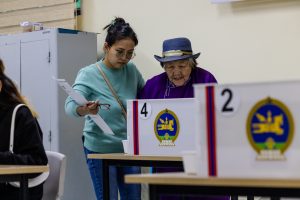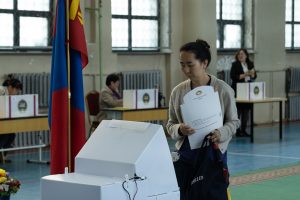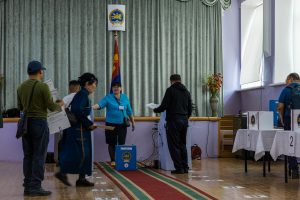Mongolians went to the polls on June 28 in an election marked by public dissatisfaction over corruption and economic inequality – and political parties’ efforts to convince voters they hold the key to solving those issues.
This was also the first election since last year’s round of constitutional reform, which not only enlarged the State Great Khural from 76 to 126 seats, but added a proportional representation element of the voting and reinstated gender quotas for party candidates.
In the preliminary results, the ruling Mongolian People’s Party (MPP) won 68 seats in State Great Khural, a much-trimmed majority compared to its haul of 62 out of 76 seats in the 2020 polls. The opposition Democratic Party notched 42 seats, an impressive increase from just 11 four years ago.
Three smaller parties also won representation in the legislature: the HUN Party (eight seats), the National Coalition (four), and the Civil Will-Green party (four). All of the National Coalition’s and the Civil Will-Green Party’s seats, and six of the HUN Party’s, were awarded via proportional representation under the new system created by the 2023 constitutional amendment.
Mongolia democratized after a peaceful protest movement led to the fall of its communist-ruled one-party government in 1990. Since then, Mongolia has upheld a proud democratic tradition situated between two increasingly authoritarian neighbors, China and Russia.

























































